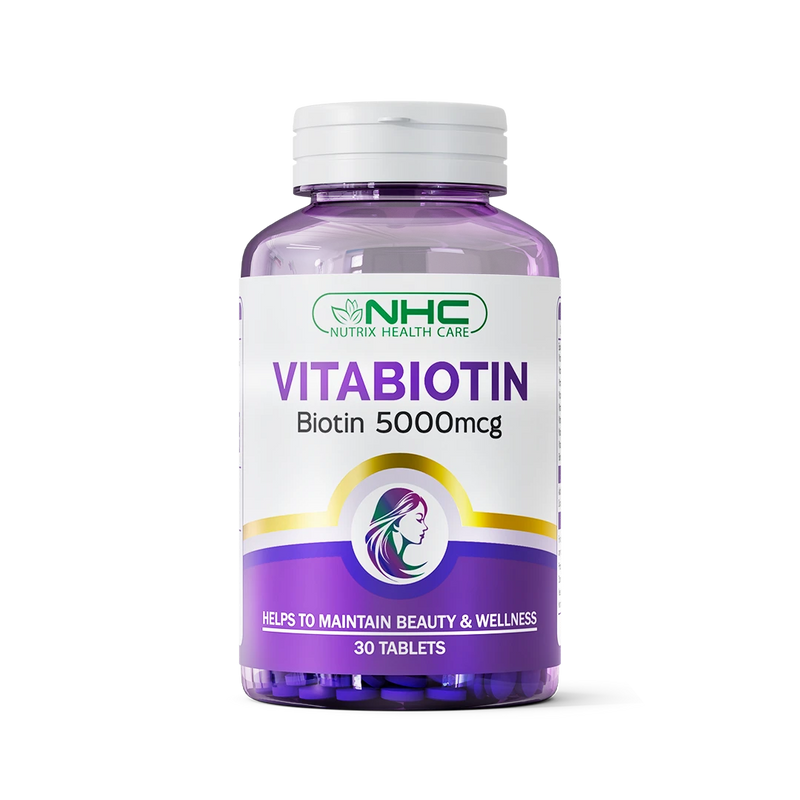A Beginner’s Guide to Understanding PCOS
PCOS, or polycystic ovary syndrome, is a common condition affecting women and young girls all around the world. In this beginner’s guide, Nutrix Health Care will help you understand PCOS and its symptoms and factors impacting it. Our goal is to provide you with the important information to understand and manage it effectively.
What is PCOS?

PCOS is a hormonal imbalance that affects women’s reproductive systems. It disrupts the normal function of the ovaries, which are responsible for producing eggs and the hormones estrogen and progesterone.
These hormones regulate the menstrual cycle. Women with PCOS often have larger ovaries with multiple small cysts.
Symptoms of PCOS
PCOS symptoms vary from person to person, but some common ones include:
- Irregular periods: Fewer menstrual cycles due to irregular ovulation.
- Excess androgen: High levels of male hormones can cause severe acne, male-pattern baldness, and excessive facial and body hair.

- Polycystic ovaries: Enlarged ovaries with multiple follicles, which can lead to irregular ovarian function.
Factors Affecting PCOS
PCOS is influenced by a combination of genetic, environmental, and lifestyle factors. A family history of PCOS increases the risk.
Environmental factors, such as exposure to certain hormones or pollutants, and lifestyle factors, like diet, exercise, and body weight, can also impact symptoms.
Stress and sleep patterns play a role in hormone regulation and can affect the severity of PCOS. Understanding these factors is important for effective management.
Consulting a Doctor
If you suspect you have PCOS, it is important to consult a healthcare provider. They will ask about your symptoms, menstrual cycle, and medical history, and may perform a physical exam, including an ultrasound and blood tests. A doctor can provide a diagnosis and create a management plan tailored to your needs.
Hormones and PCOS Complications
Hormonal imbalances are at the core of PCOS. Irregular levels of hormones like estrogen, progesterone, and androgens cause symptoms like irregular periods and excess hair growth.
Over time, these imbalances can lead to more serious health issues, such as type 2 diabetes, cardiovascular disease, and even endometrial cancer. Managing these hormones is key to controlling both the symptoms and the long-term risks.
Effects on Fertility and Mental Health

PCOS can have a significant impact on both fertility and mental health. Hormonal imbalances can make it difficult to conceive, leading to infertility.
The physical symptoms, such as excessive weight gain and unnecessary hair growth can also affect self-esteem and body image. That is why, comprehensive care is essential for managing this condition.
PCOS Diet and Foods
Diet plays a crucial role in managing this condition. Here are some dietary tips:
- High-Fiber Foods: Help lower insulin resistance, which is common in PCOS. Include vegetables, fruits, nuts, beans, and whole grains.
- Lean Protein: lean protein sources like fish, poultry, tofu, and legumes can contribute to blood sugar balance.
- Anti-Inflammatory Foods: Reduce inflammation with foods like tomatoes, spinach, nuts, olive oil, and fruits like strawberries and blueberries. Spices like turmeric and cinnamon also help.
Avoid refined carbs, like pastries and white bread, and limit sugary snacks and drinks to manage symptoms effectively.
Conclusion
PCOS is a complex condition but it can be managed effectively with the right approach. Do not hesitate to seek professional help if necessary as early and proactive management can greatly improve the quality of life. Remember that you are not alone and managing PCOS is possible!
FAQs
1. How do I start managing PCOS?
Start by consulting a healthcare professional for a diagnosis. Then, focus on lifestyle changes, such as eating a balanced diet, exercising regularly, and maintaining a healthy weight.
2. What is the first treatment for it?
The first treatment often involves lifestyle changes, like diet and exercise. In some cases, medication may be prescribed to regulate hormones and menstrual cycles.
3. What is the first stage of PCOS?
PCOS is not typically described in stages. Instead, treatment is based on individual symptoms and needs.


